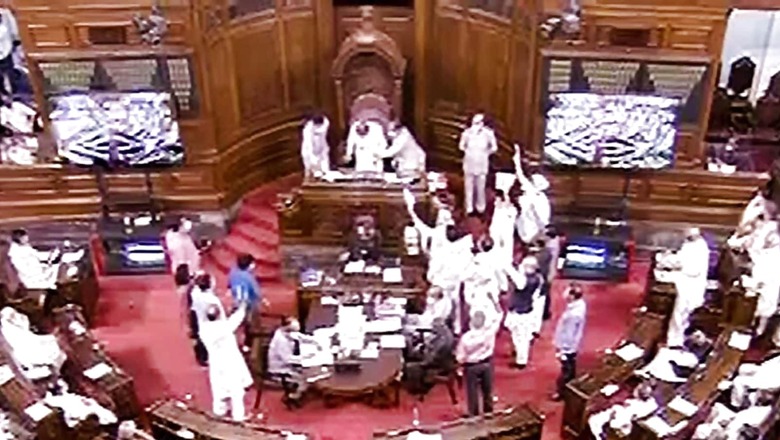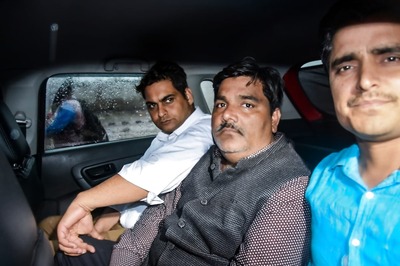
views
A BJP Rajya Sabha MP on Thursday urged the government to analyse the best features of all religions, compile and adopt them as a Uniform Civil Code. Making a special mention in the Rajya Sabha, K C Ramamurthy said India has been striving hard for gender equality to provide equal status to women, irrespective of religion or community. He said that Article 14 of the Constitution says the State shall endeavour to provide for its citizens a Uniform Civil Code (UCC) throughout the territory of India.
Ramamurthy said the objectivity of UCC is to unify fragmented personal laws for marriage, divorce, custody, adoption, and inheritance, and also cover civil and human rights issues. Personal laws of different religions are dissimilar and violate Article 14 of the Constitution, which guarantees equality before the law, he said, adding that the US, the UK and many European countries have UCC.
Even Goa is implementing a Uniform Civil Code, the BJP MP said. Stressing that misconceptions about UCC need to be removed, Ramamurthy said, “I appeal to the Government of India to analyse best features from all religions, compile and adopt them in the form of code called Uniform Civil Code, which will be in the public interest.” Raising the issue of caste-based panchayats and khap panchayats, NCP member Fauzia Khan said they are taking law into their own hands and “ostracising people”, humiliating them, and calling for a social boycott.
“This arbitration…we have to pay attention to because if this is not allowed by law, I think we should come up with the legislation,” she said. Khan said such panchayats should be abolished completely because they are going against the Constitution of India.
Ahead of the Uttar Pradesh Assembly elections, a BJP MP in Rajya Sabha on Thursday raised the Sri Krishna Janmabhoomi land dispute issue of Mathura and demanded a law that would provide for the status quo to be scrapped. Raising the issue through a zero hour mention, Harnath Singh Yadav described as “unconstitutional” the Places of Worship (Special Provisions) Act of 1991 that prohibits conversion of any place of worship and provides for the maintenance of the religious character of any place of worship as it existed on August 15, 1947.
While the act makes an exception to the legal case around the Ram Janmabhoomi in Ayodhya, all legal disputes in courts over any other religious places are considered closed by the 1991 Act, he said. “This provision not just violates the constitutional provision of the right of equity but also secularism, which is part of the constitutional preamble,” he said. “It is strange that this law provides that no citizen can go against it to the courts. Nor can this law be challenged.” He said the law gives “legal sanctity” to the “forceful occupation of the Krishna Janmabhoomi and other religious places by foreign invaders”.
“This arbitrary and unconstitutional law has deprived Hindus, Jains, Sikhs and Buddhists of their right to practice and propagate their religion,” he said. Also, the 1991 law discriminates between Lord Ram and Lord Krishna as both are ‘avatars’ of Lord Vishnu.
Read all the Latest Politics News here



















Comments
0 comment